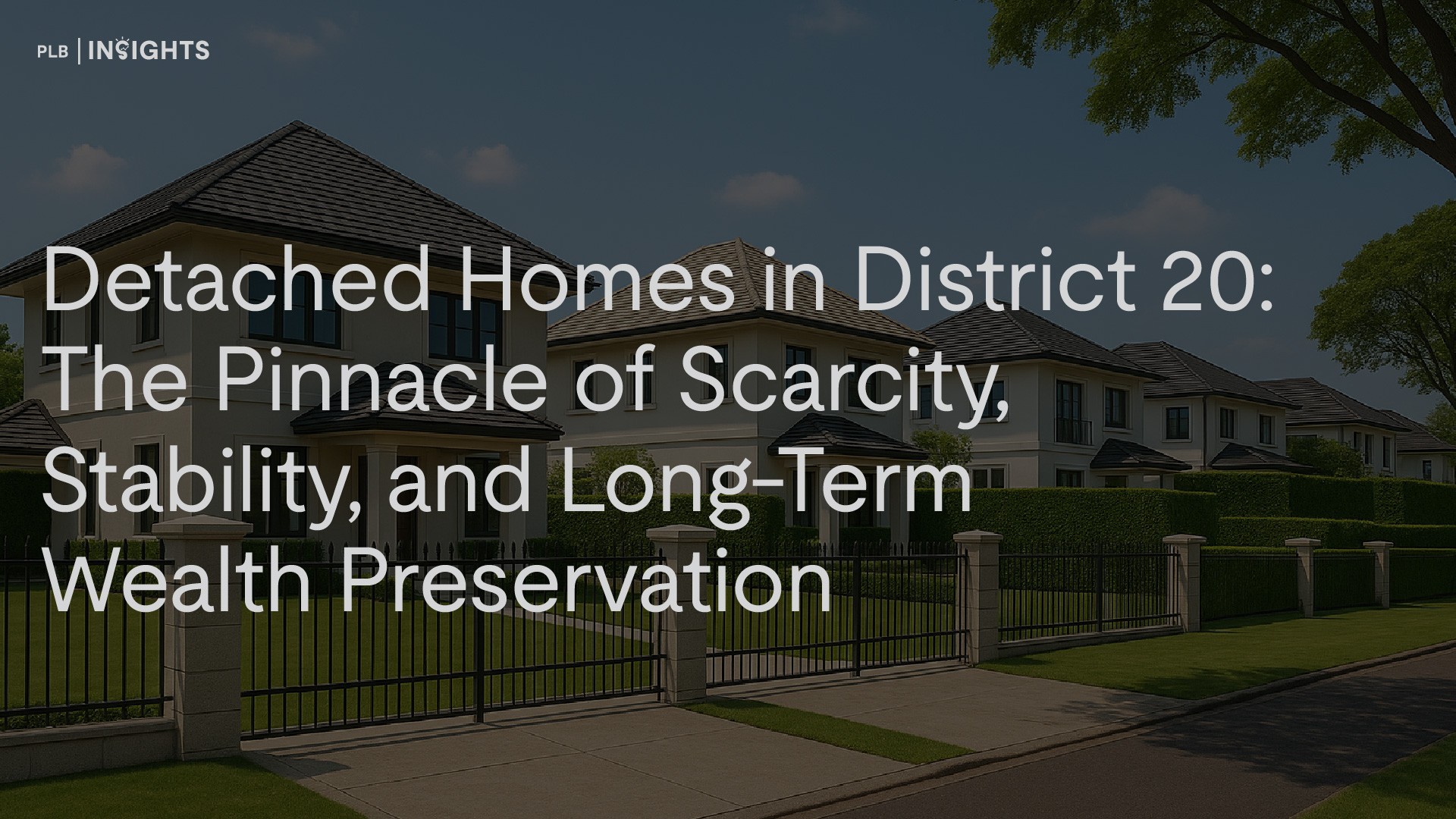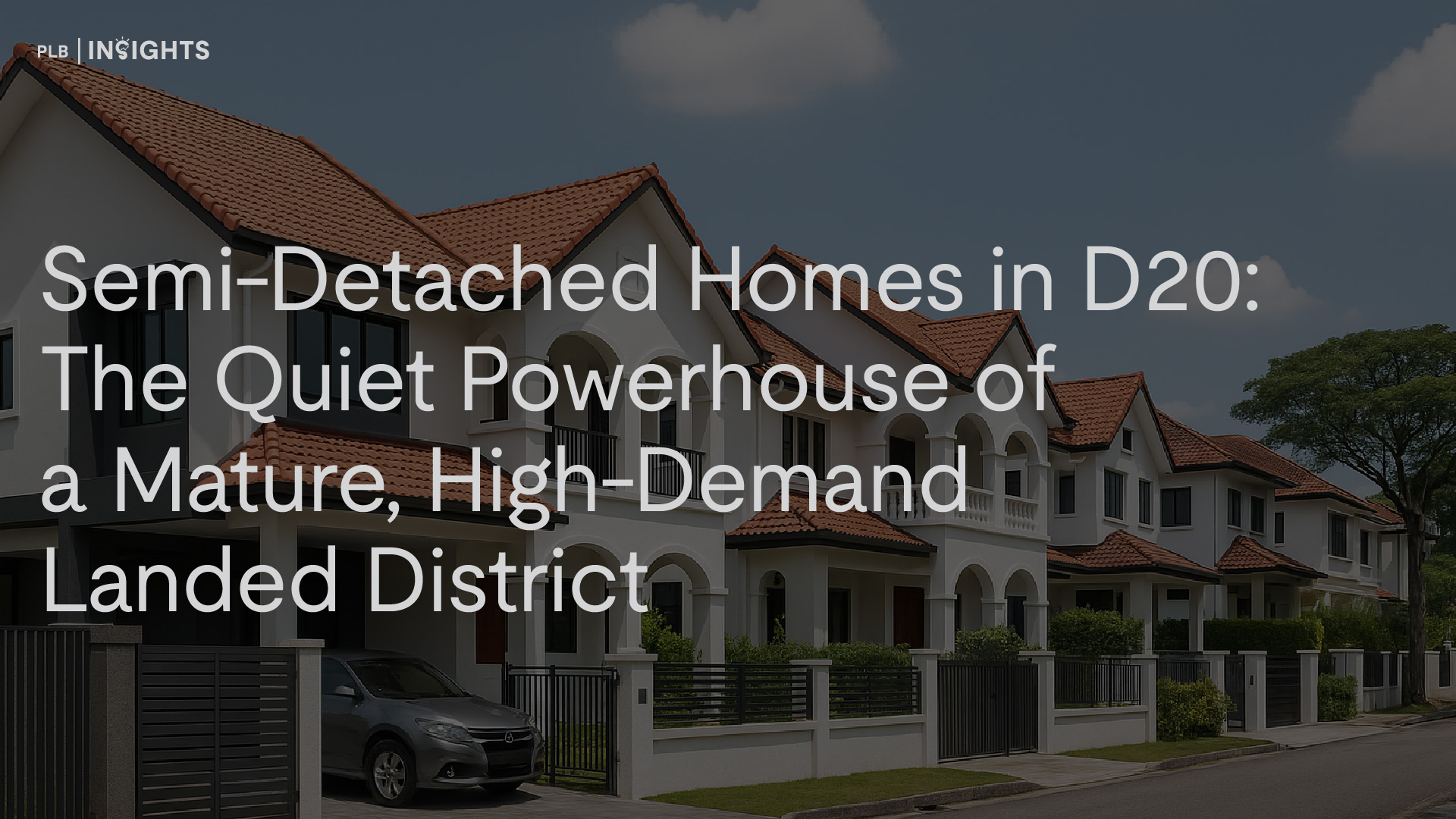
While landed property in Singapore only makes up a minority of housing in Singapore (for obvious reasons), it still comes in all shapes and sizes. Nevertheless, Landed Properties make up 4.9% of housing in Singapore and URA categorises landed properties into 4 distinct types – Terrace houses, Semi-detached houses, Detached houses and Good Class Bungalows.
And these terms can be quite confusing, so here’s a quick breakdown of what they exactly are!
Landed Property Types Definition

What defines whether it is a Pure Landed or Strata Landed?
Whether your landed house is classified as a Strata Landed or a Pure Landed house, depends on the type of land it sits on.
According to the URA website, landed houses will be classified as Strata Landed if it occupies a common development site with shared communal facilities and a single vehicular access point.
Whereas, landed houses with its own land title will be classified as a pure landed property.
What defines a Landed Build Type?
The key differences between the different build types are mainly the minimum plot size, width, depth, site coverage, setback control and boundary clearance for roof eaves (the overhanging portion of the roof). These categories are what define whether a landed property is a bungalow, terrace or semi-detached
1. Bungalows (or Detached Houses)

a. Stand-alone landed house
2. Semi-detached

a. One half of a pair of houses
b. The houses are separated by a common wall along one side of the house
c. Houses can either be conjoined together side-to-side or back-to-back
3. Terrace Houses

a. Landed properties that form part of a row of more than 2 dwelling houses conjoined by common walls
b. The houses at the end of the row are often affectionately referred to as corner terraces.

With recent headlining news such as Belgravia Ace selling over 90% within moments of launch. There has been a recent pickup in interest with Strata Landed housing. Suppose you’re one of the fortunate few to be eyeing a landing property in Singapore. In that case, a question that you might be asking is what exactly is the difference between a Pure Landed property versus a Strata landed property. And whether the difference results in a performance difference in capital appreciation.

Strata Landed vs Pure Landed Data Analysis
For performance analysis, we gathered the past 5 years of transactions. We did not include Good Class Bungalows into the mix of analysis as we felt that it was in a class of its own.
Strata vs Pure Landed: Average PSF

As seen from the above line graph charting average PSF, pure landed properties have a higher average PSF than strata landed properties.
Pure Landed properties also have a more distinct general increase in Average PSF over the past 5 years compared to Strata Landed.
Out of all the Strata Landed, only terrace houses saw a distinct increase from an average PSF of $736.05 PSF in 2017 to $922.70 PSF in 2022.
This is because most Strata Landed properties come mostly in the form of terrace houses, and with a significantly larger volume of transactions, this sets greater precedence for higher and higher prices.


The increase in price is likely boosted by the pandemic where the demand for space and larger units grew significantly. Turning the spotlight to Strata Landed housing which offered the floor space that was in demand yet priced competitively against Pure Landed Homes.
Furthermore there is also an added benefit of providing common facilities that you would find in a condominium development. Hence, in correlation with the push in demand, a positive price performance was observed.
Strata vs Pure Landed: % Change in Average PSF

On the contrary, when comparing change in Average PSF, Strata Landed Properties edged out Pure Landed properties.
This could be due to the growth in PSF pricing of condominium properties, as it closes the price gap between the two different asset classes. Homeowners may find it more worthy to fork out the extra money to own a much bigger home, especially during the pandemic.
Volume of Transactions (Volume Effect)


If we were to take a look at the number of landed transactions, we can see a correlation between volume of transactions and change in average PSF.
Landed properties that commanded higher transaction volumes, resulted in a greater positive % change in average PSF.
But why does transaction volume have that ability to affect prices? As outlined in our previous article, MOAT Analysis — Volume Effect, how Singaporean banks value houses is primarily driven by the number of transactions, giving greater weight to transactions done recently.
Do, however, take note that volume of transactions is just one of the several factors affecting the valuation of a house. Other factors include lease type, land size, condition of building and many more.
So what’s the Difference? Landed vs Strata-Landed
While Strata-Landed offers a much more attractive average PSF for entry, capital appreciation with the exception of Strata Terraces.


However, the more attractive PSF does come at a cost — the land lease type. Compared to pure landed, a greater proportion of Strata Landeds are leasehold instead of freehold, thus also affecting the potential for capital appreciation.
Strata Landed owners also need to keep in mind that you won’t be able to do rebuilds or Additions & Alterations works, unless approved by the Management Corporation Strata Title (MCST).
So should I buy a Pure Landed or a Strata-Landed?
It really depends on your housing needs, and the goals for your property investment plan.
Strata Landed offers a more attractive price point, and may potentially be a more “fuss-free” option, not having to engage your personal maintenance contractors to maintain the surrounding landscape.
But you could potentially be giving up the opportunity to own a depleting supply of Landed Freehold properties on this tiny island.
Whatever the case is, always do your due diligence and consult reputable property agents when asking for advice and transacting your home.
Need more guidance on planning your real estate investment plans? Feel free to reach out to our team. Click here to contact us now!









